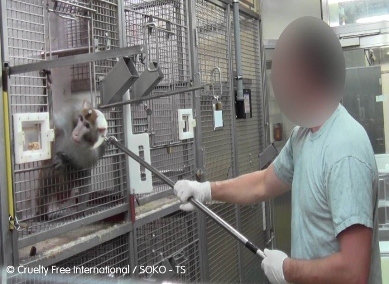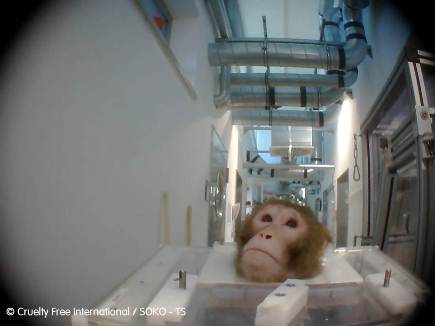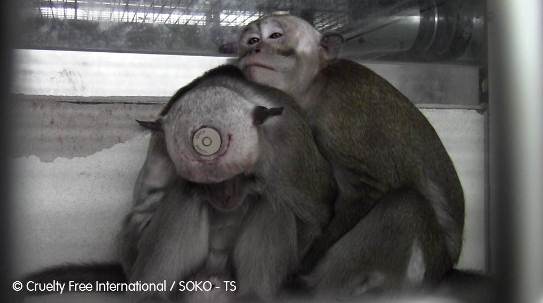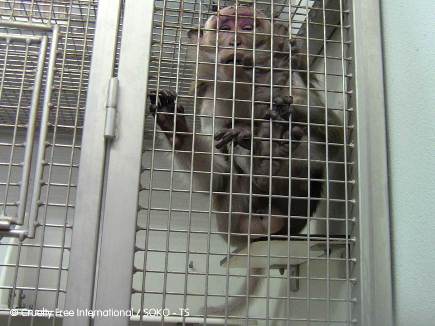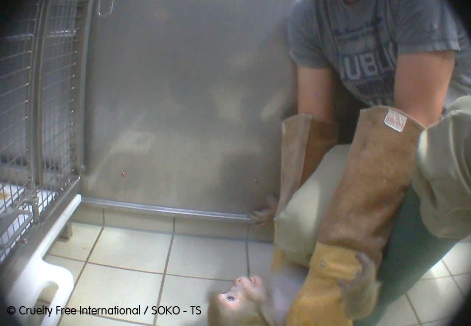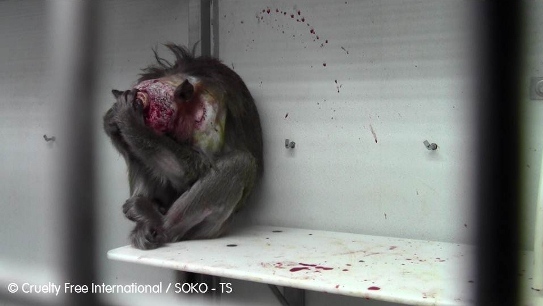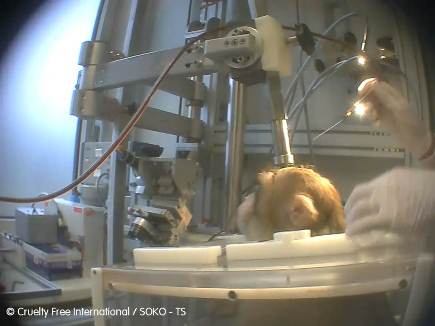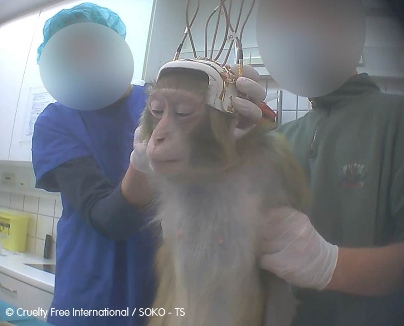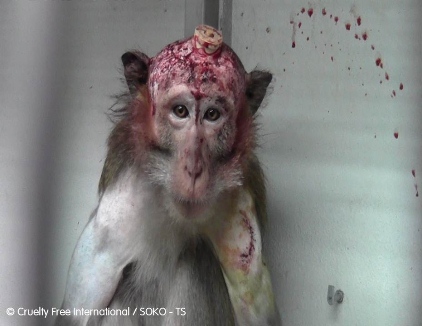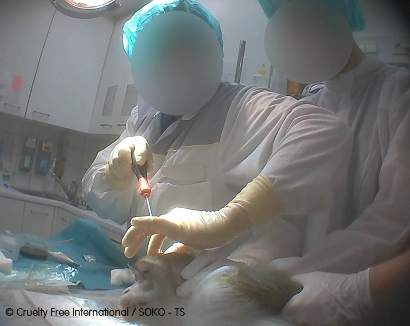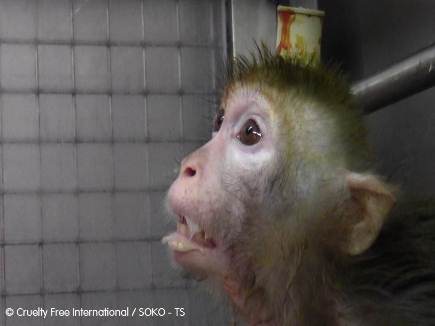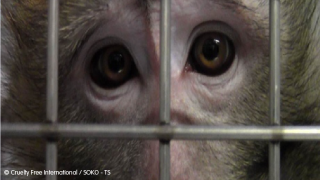Our investigation uncovers the brutal way in which monkeys’ lives were controlled and manipulated

Our investigation at the Max Planck Institute for Biological Cybernetics in Tübingen, Germany in 2013 and 2014 uncovered the brutal way in which monkeys’ lives were controlled and manipulated by researchers. The monkeys were:
- forced to have major brain surgery to implant devices in their skulls
- deliberately deprived of water for days
- controlled by a pole attached to a collar around their necks
- held in a restraint device with their heads immobilised by a post implanted in their skulls
- imprisoned inside dark, silent chambers
- forced to carry out mundane tasks over and over for hours at a time, day after day, month after month
WARNING video contains footage that some viewers may find upsetting
What we found
Monkeys, deprived of water for days, were so desperately thirsty they resorted to drinking their own urine.
Monkeys had hard plastic collars with a metal ring continuously fastened around their necks so that a metal pole could be used to forcibly remove them from their cages.
Monkeys were forced to recover from sedation with their heads severely restrained by a neck clamp in a cruel “training” device designed by the laboratory.
Monkeys were subjected to major head surgery during which head posts and recording or injection chambers were surgically implanted into their skulls.
Monkeys suffered nasty bleeding head wounds. For some, their head wounds became infected, including with MRSA.
Monkey experiments
The focus of the work carried out at MPI is "basic research", carried out to understand the brain, vision and other processes in macaque monkeys.
We believe the use of monkeys in this way is both cruel and ill-conceived. Trying to apply findings from these animal experiments to humans is highly speculative. And diverting scarce research funds to study macaques’ brains is wasteful.
There are better ways to do this research that do not inflict harm and suffering on animals.
What happened next?
Thanks to our supporters, our investigation sparked a debate across Europe about the use of primates in brain research. It gained the backing of scientists, primatologists and animal welfare experts like Sir David Attenborough and Dr Jane Goodall.
In 2016 we heard that the institute finally put an end to its cruel brain experiments on monkeys (although the wider Max Planck Society does still use monkeys at other sites).
Sadly, the remaining monkeys were not released to sanctuary, despite our best efforts but were instead given to other laboratories across Europe to be tested on.
Criminal proceedings were initiated by the state prosecutor in Tübingen in 2018 against three researchers at the Max Planck Institute on the grounds of animal cruelty. Allegations against the researchers include causing “significant and longer-lasting harm” to three monkeys after failing to end brain experiments on welfare grounds.
In 2019 the district court in Tübingen announced that the criminal case had been suspended but nonetheless the researchers were ordered to pay a fine of thousands of euros.
No report from the German authorities has been released. We continue to push for transparency.

